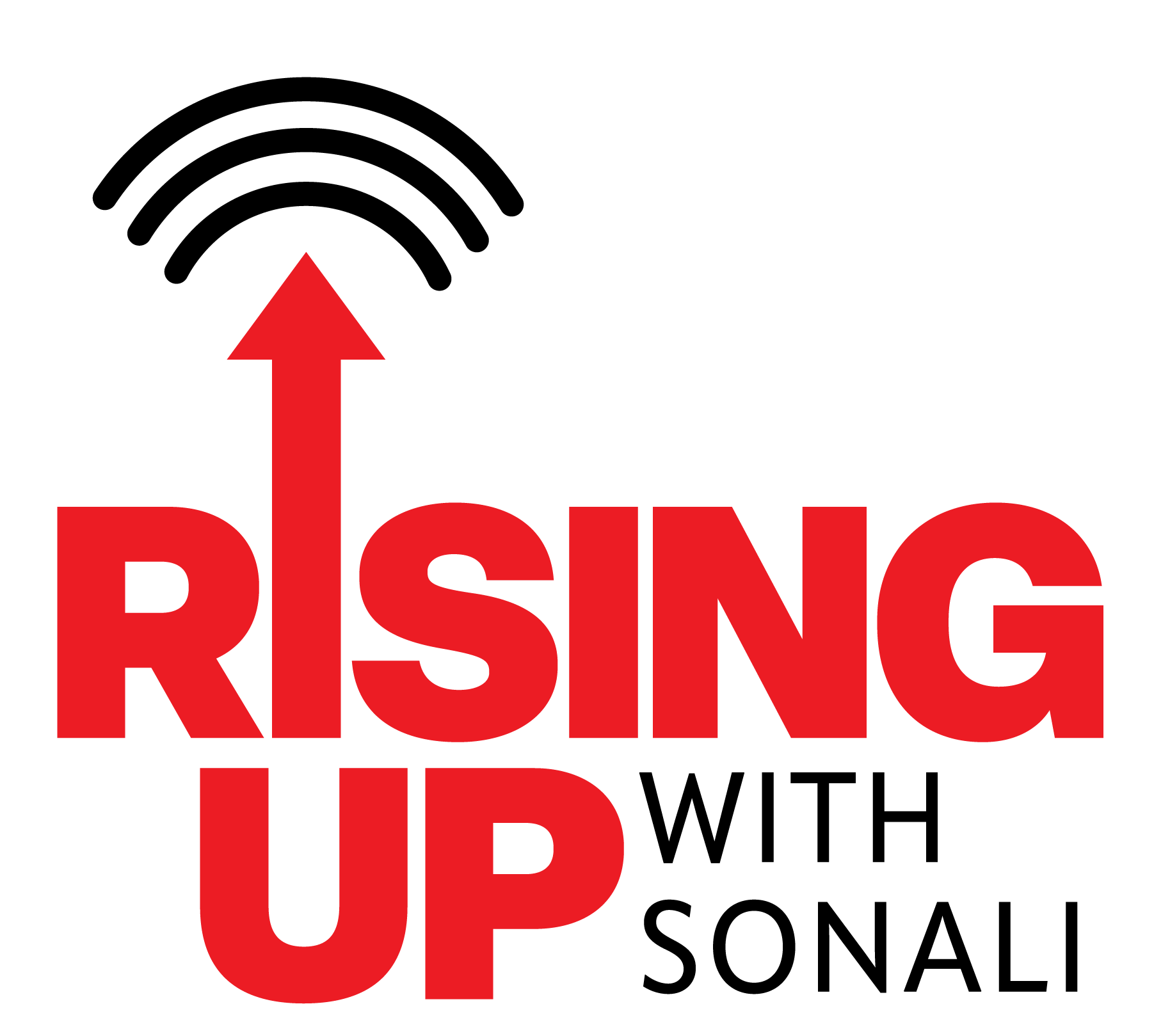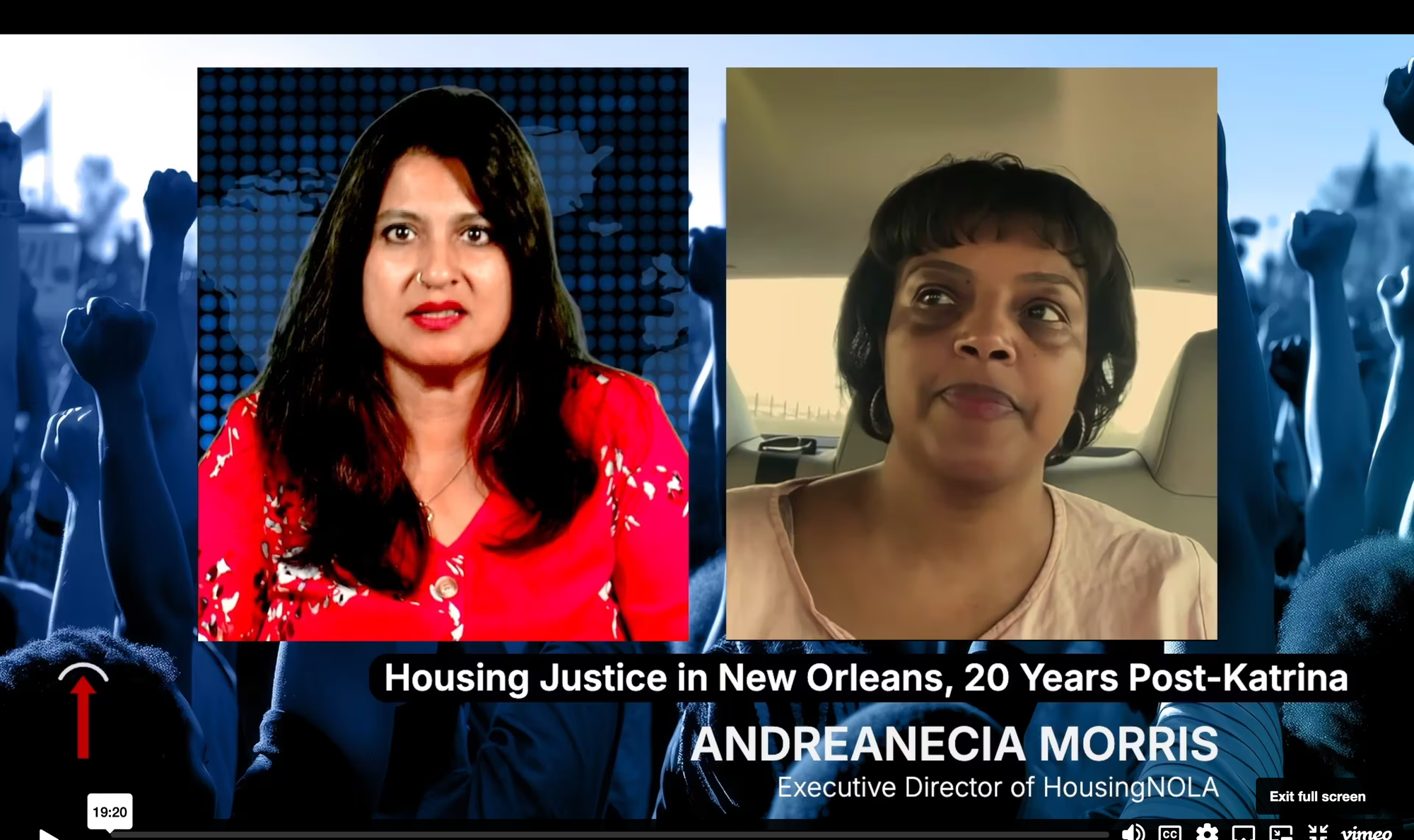FEATURING ANDREANECIA MORRIS - This week marks the 20th anniversary of Hurricane Katrina, a Category 3 storm that devastated the Gulf Coast of the United States and especially the majority-Black city of New Orleans. When the city’s levee system broke, it flooded New Orleans leaving untold numbers of residents waiting for days for rescue. The official death toll was about 1,400 and the damage to homes and other infrastructure ran into the hundreds of billions of dollars.
Today, housing remains the biggest challenge to a city that is one of the nation’s most treasured centers of culture and history. What is the status of housing in New Orleans and how are advocates working to renew and rebuild?
Andreanecia M. Morris is the Executive Director of HousingNOLA, a 10-year partnership between the community leaders, and dozens of public, private, and nonprofit organizations working to solve New Orleans’ affordable housing crisis. She is also president of the Greater New Orleans Housing Alliance. She spoke with Sonali Kolhatkar about what it will take to make housing in New Orleans affordable, especially for its original residents.
ROUGH TRANSCRIPT:
Sonali Kolhatkar: So first, when we think about the devastation, obviously the numbers of people lost and of course then the devastation to families at losing their loved ones is something that just can't be measured. And I'm wondering if we can start off with a general look at the pain, the scars, if you will, of Hurricane Katrina. It's been 20 years. A generation has grown up into adulthood since after the storm, and yet how deep are those scars still in the city?
Andreanecia Morris: So there's been a lot of efforts mostly on people on the ground and some key leaders to take the time to address those issues, the inequities. But mostly we've just been fighting to rebuild and fighting to come home.
And, and so that's one of the big challenges is that there was a generation of children. There was a recent documentary called Katrina Babies, the children who grew up, many of whom were in their formative years when Katrina happened and were evacuated and grew up with that trauma at that such a formative stage. It's, it's really similar to what people are seeing with COVID babies. What we, what we're gonna see is the COVID generation.
And, so we've been talking about how we deal with that.

